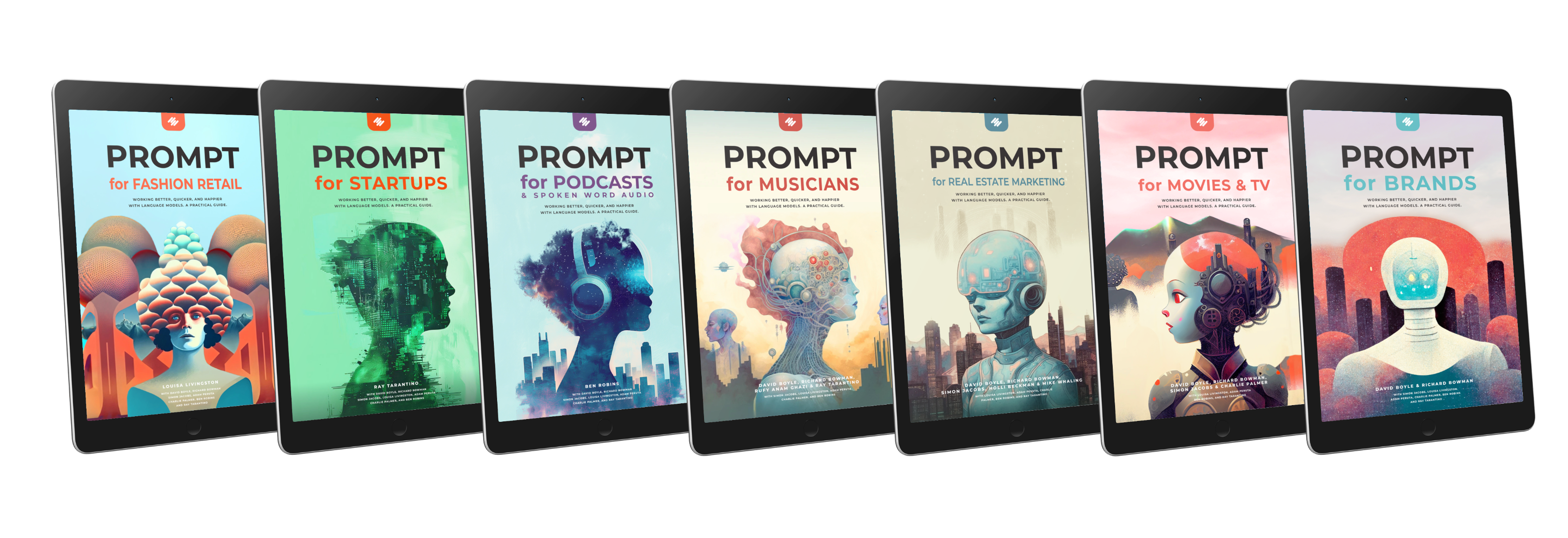In a world where artificial intelligence (AI) is not just enabling but catalyzing innovation and efficiency, the question is no longer whether we should use AI, but whether it's ethical not to. Rob Garlick's profound statement about the future necessity of AI in medicine - that it may soon be considered unethical for doctors not to leverage AI assistants - opens a broader conversation about the ethical implications of AI across various professional and personal spheres.

As AI tools become increasingly sophisticated and effective, the imperative to harness their power grows. In healthcare, the stakes are clear - if AI can help prevent misdiagnosis, streamline treatment plans, and ultimately save lives, then utilizing it becomes a moral obligation rather than an option. A doctor's oath to "do no harm" may soon necessitate partnering with AI to deliver the best possible care.
But the ethical considerations of AI usage extend far beyond the life-and-death scenarios of the medical field. They permeate our daily work in ways both profound and mundane. Let's consider the humble spell checker - an AI-powered tool that not only corrects typos but can enhance the clarity and impact of our writing. Is it not a form of respect for our reader's time and comprehension to ensure our communications are as polished and error-free as possible? Sending an unedited draft riddled with mistakes becomes akin to snail-mailing a handwritten letter in the age of email - a disregard for the efficiency and convenience that technology affords.
The same principle applies to how we generate and refine ideas. Before we tap our colleagues for feedback, do we not have an ethical obligation to think it through clearly ourselves? Bouncing an idea off an AI sounding board first can help us articulate our thoughts more coherently, identify potential weaknesses, and ultimately present a more considered proposal to our human collaborators. It's about respecting their time and mental energy.
Similarly, engaging AI for preliminary brainstorming or criticism of our work is not a shortcut but an act of due diligence. It's subjecting our output to an initial quality check, much like running a spell check before hitting send. By allowing AI to flag fundamental issues, we minimize the burden on our peers to catch basic mistakes and free them to provide higher-level feedback.
Some may argue that relying on AI for these tasks is a crutch, that it dulls our own critical thinking and creativity. But I would counter that it's no more a crutch than Googling a fact rather than relying solely on memory or using a calculator for complex equations. These tools don't replace our intelligence but augment it, allowing us to focus our mental energy where it matters most.
Of course, the integration of AI into our work is not without its challenges and caveats. We must be mindful of its limitations, biases, and potential for error. AI should complement human judgment, not substitute for it entirely. But as these tools grow more robust and reliable, the balance will inevitably shift. What once seemed like an aid will become an essential ally.
As we navigate this brave new world of AI-assisted work, we must continually re-evaluate the ethical implications. The goalposts will keep moving as the technology evolves. But one principle should remain constant: that we have a responsibility to leverage the best tools at our disposal to produce the best possible work, for the sake of those we serve and collaborate with.
So the next time you're about to send an email, submit a report, or pitch an idea, ask yourself - have you given it the AI treatment? Have you employed the spell check, the brainstorm buddy, the constructive critic? If the answer is no, then you might want to reconsider. Because in a world where AI can amplify our abilities in profound ways, choosing not to use it is not just a missed opportunity. It's bordering on an ethical lapse.
The future Rob Garlick envisions, where doctors are dutybound to collaborate with AI, is not a farfetched dystopia. It's a harbinger of a new professional paradigm, one where harnessing the power of AI is not just a competitive edge but a moral imperative. And it's a paradigm that will reshape fields far beyond medicine.
So let us embrace this AI-augmented future not with trepidation but with a sense of ethical urgency. Let us wield these tools with wisdom, discernment, and an unwavering commitment to doing our best work. For in the age of AI, "good enough" is no longer good enough. Excellence isn't just expected; it's an ethical obligation.

